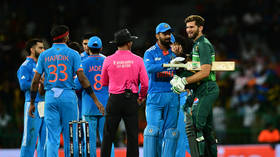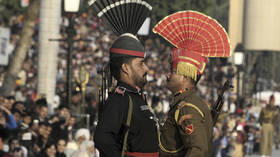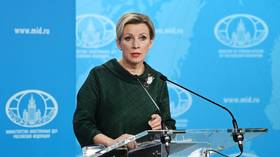Calls in India to stop playing cricket against Pakistan

A movement is gaining steam in India to suspend cricketing ties with Pakistan, in the aftermath of the killing of at least three Indian officers in an encounter in Jammu and Kashmir region. The clamor comes just days after India trounced Pakistan in a highly-anticipated Asia Cup cricket match in Sri Lanka.
Two Indian Army officers and an officer from the Jammu and Kashmir Police were killed in gunfire exchange with terrorists, after a joint police-army team launched a counter-insurgency operation at Garol village in Kokernag, in south Kashmir’s Anantnag district, police said on Wednesday. Another officer wounded in the same attack later succumbed to his injuries.
According to India Today, the Resistance Front, an offshoot of radical terrorist organization Lashkar-e-Taiba, admitted responsibility for the attack, a retaliation for the killing of its commander Riyaz Ahmed.
Union Sports Minister Anurag Thakur on Friday said India will not play any bilateral cricket matches with Pakistan unless the latter stops cross-border terrorism. His remarks came in the wake of national outrage over the attack, with many taking to social media to urge the Board of Control for Cricket in India (BCCI) to stop cricket matches with Pakistan.
“The BCCI decided long ago that it will not play any bilateral matches with Pakistan until they stop terrorism. We will not resume our cricketing ties with Pakistan unless they stop carrying out attacks across the border, or infiltration incidents,” Thakur, a former BCCI president, told media.
Since 2013, the two cricket-crazy neighbors have only faced each other on the field during global events hosted by the International Cricket Council (ICC).
Retired Indian army Major Pawan Kumar posted a picture of colonel Manpreet Singh, who was killed in the attack, on X (formerly Twitter) saying India should “immediately stop all extracurricular activities with Pakistan.”
Remember this face who got killed in action fighting against the Pakistani sponsored terrorists. Remember this face once when you enjoy the next match with Pakistan Remember his family when you say that all Pakistanis are not terrorists To hell with @imVkohliand his fans… pic.twitter.com/5IPFuXHabp
— Major Pawan Kumar, Shaurya Chakra (Retd) 🇮🇳 (@major_pawan) September 13, 2023
Arun Krishnan, an author, replied to Kumar’s post and said India should ask its cricketers “to not act all chummy with the Pakistanis.” Monica Verma, a political analyst, wrote, “Time to say no to cricket, music, cinema or any other type of ties with Pakistan.”
“Will never watch an India Pakistan Cricket Match ever again in Life,” journalist Deepika Narayan Bhardwaj posted, adding that “this is the least we can do to give solace to families who must be writhing in pain.”
Some cricket fans suggested that Indian cricketers should wear black armbands during their upcoming matches with Pakistan to pay homage to the deceased officers.
Earlier, the Asia Cup cricket tournament was shifted from Pakistan to Sri Lanka at the last moment, after BCCI secretary Jay Shah made it clear that the Indian team would not be traveling to Pakistan, citing a “lack of clearance from the government.”
There were also doubts about Pakistan’s participation in the ICC World Cup, scheduled to be held in India from October 5 to mid November, but the team later received clearance from the Pakistani government to travel to India for the quadrennial tournament later this year.
The relationship between India and Pakistan has been mired in complexity since the 1947 partition of British India, despite the two nations sharing linguistic, cultural and commercial ties. They have fought numerous armed conflicts since their independence. In February 2021, the two agreed a ceasefire along the Line of Control (LoC) in Jammu and Kashmir. However, it remains highly fragile, particularly in areas of infiltration.













